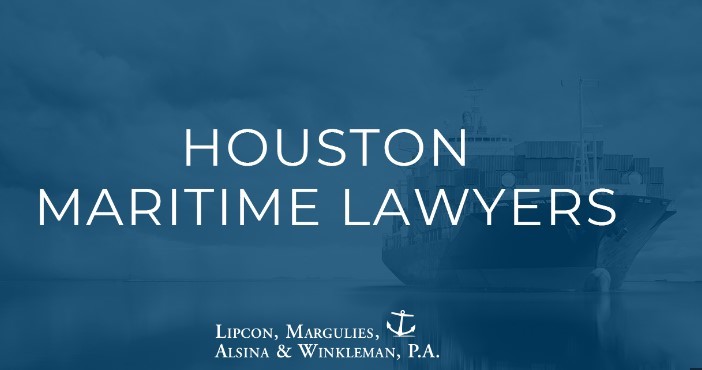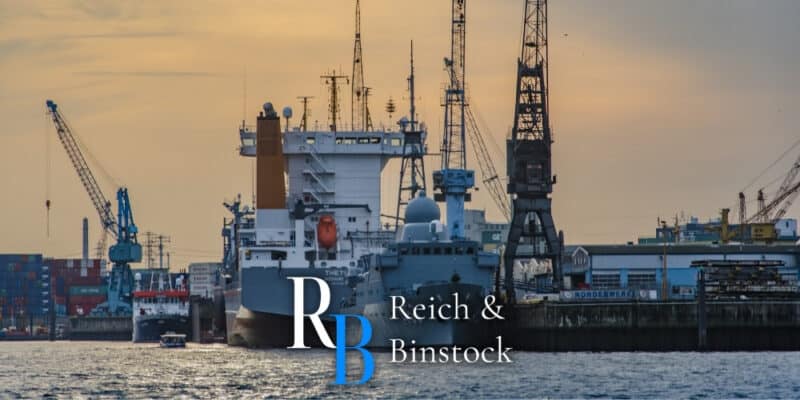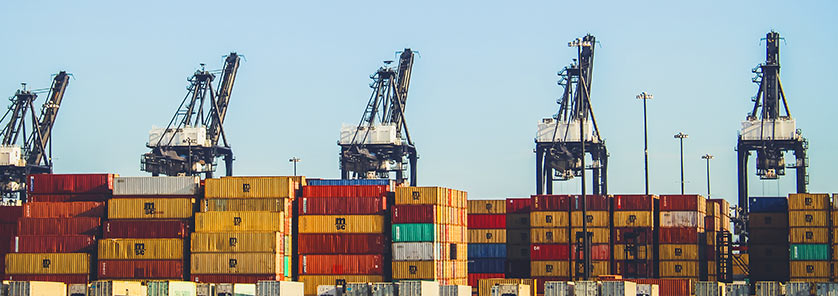Houston is one of the busiest ports in the United States, and it plays a crucial role in the country’s maritime industry. With numerous shipping channels and a significant amount of cargo passing through every day, Houston has become a hub for both domestic and international maritime commerce.
Toc
As a result, understanding maritime law is essential for professionals working in this industry in Houston. Whether you are a ship owner, captain, seafarer, or port worker, having knowledge about maritime laws can protect your rights and ensure compliance with regulations.
Introduction

Houston is more than just a bustling metropolis; it is one of the most critical ports in the United States, playing a pivotal role in global maritime trade. For businesses and professionals operating within this dynamic environment, understanding maritime law is not just beneficial—it is essential.
The Importance of Maritime Law
Maritime law, also known as admiralty law, is a body of laws that govern activities at sea. It covers various aspects such as navigation, shipping, and cargo transportation. In Houston, maritime law is particularly crucial due to the city’s significant role in global trade.
One of the key reasons why understanding maritime law is essential for industry professionals in Houston is because it provides a framework for resolving disputes and mitigating potential risks. With so much activity happening in the port, conflicts are bound to arise, and having knowledge of maritime laws can help resolve these issues efficiently.
Additionally, complying with maritime laws is not only necessary for smooth operations but also for avoiding legal repercussions. Violations of regulations can result in hefty fines or even criminal charges, which can be detrimental to any business or individual.
Common Maritime Law Issues
The complexity of maritime law can make it challenging to navigate, and there are many potential issues that industry professionals in Houston may face. Some of the most common maritime law concerns include:
- Personal injury claims: Working in a maritime environment can be dangerous, and accidents resulting in injuries are not uncommon. Maritime laws have specific regulations for handling personal injury claims, which can vary depending on the circumstances.
- Cargo disputes: With so much cargo being transported through Houston’s ports, disagreements over ownership or damages can occur. Understanding the relevant laws and having proper documentation is crucial when dealing with cargo disputes.
- Environmental regulations: As awareness of environmental issues increases, so do the regulations surrounding maritime activities. Violations of these regulations could result in significant penalties and damage to a company’s reputation.
Significance of Maritime Law in Houston

Houston’s location on the Gulf of Mexico and its proximity to major waterways make it a crucial hub for maritime trade. The city is home to the Port of Houston, which is one of the busiest ports in the country, handling over 200 million tons of cargo annually.
As such, understanding maritime law is not only essential for businesses operating within this booming industry but also for maintaining the safety and wellbeing of those working in it. With proper knowledge and adherence to regulations, potential risks can be minimized, ensuring smooth operations and protecting individuals’ rights.
Houston as a Major Hub for Global Maritime Trade
Houston’s strategic location combined with its extensive port facilities has made it a major player in global maritime trade. The Port of Houston serves as a vital link between the United States and international markets, facilitating the import and export of goods across numerous sectors, including oil and gas, manufacturing, and agriculture. Its intermodal capabilities allow for seamless transportation by land and sea, enhancing the efficiency of the supply chain.
Moreover, the economic impact of the maritime industry on the Houston area cannot be overstated. Thousands of jobs are directly or indirectly related to port activities, ranging from shipbuilding to logistics services. As the global marketplace continues to evolve, the importance of navigating maritime law will only intensify, ensuring that industry professionals are equipped to manage the complexities of their roles in this thriving hub.
In addition, the ongoing development and modernization of port facilities highlight Houston’s commitment to remaining at the forefront of international trade. This evolution not only boosts economic growth but also reinforces the necessity for a deep understanding of maritime regulations to foster compliance and encourage sustainable practices. As Houston cements its position as a leading global port, the implications for maritime law and its enforcement will undoubtedly grow, making it critical for stakeholders to stay informed and adaptable.
Implications of Maritime Law on Local Businesses and Operations
The implications of maritime law on local businesses in Houston are profound, influencing nearly every aspect of operations within the maritime sector. Companies engaged in shipping, logistics, and related services must stay compliant with a myriad of laws to ensure their legal protections are in place. This adherence not only safeguards businesses against potential lawsuits but also enhances their credibility in the eyes of international partners.
For instance, local businesses involved in the transportation of hazardous materials must comply with strict environmental regulations under maritime law, ensuring safe handling and transportation to prevent spills or accidents. Similarly, shipping companies need to be acutely aware of their liability when it comes to cargo damage and loss. By understanding the legal framework, businesses can not only mitigate risks but also strategize their operations to enhance efficiency and protect their bottom line ultimately.
Moreover, the evolving nature of maritime law, influenced by international conventions and regulations, requires continuous education and training for personnel. This ongoing professional development is essential, as it helps businesses adapt to new requirements and maintain compliance, ensuring competitiveness in the global marketplace. The interplay between maritime law and local business practices will continue to shape the landscape of maritime commerce in Houston, making it imperative for stakeholders to remain well-informed and proactive in their approach.
Key Maritime Laws and Regulations in Houston

Houston’s maritime sector is governed by a complex web of laws and regulations at the federal, state, and local levels. Understanding these laws is critical for businesses to operate safely and avoid penalties or legal action. Some key maritime laws and regulations in Houston include:
The Jones Act: Protecting Workers’ Rights
The Jones Act, also known as the Merchant Marine Act of 1920, plays a pivotal role in protecting maritime workers’ rights in Houston and throughout the United States. This federal statute mandates that only vessels built and registered in the U.S. can transport goods between domestic ports, thereby promoting domestic shipping and safeguarding American jobs in the maritime industry. Importantly, the Jones Act provides seamen with the right to pursue compensation for injuries sustained while on the job, holding employers accountable for unsafe working conditions.
Under this legislation, injured seamen can file personal injury claims to seek damages for medical expenses, lost wages, and pain and suffering. This right is essential, as maritime work can be inherently dangerous, given the risks posed by heavy machinery, rough seas, and the physically demanding nature of the job. By ensuring that maritime workers have access to the legal recourse they need, the Jones Act fosters a safer and fairer working environment, underpinning the overall stability of the maritime economy in Houston.
Moreover, navigating the complexities of the Jones Act and its implications is crucial for employers in the industry. Understanding compliance requirements promotes not only legal adherence but also crafted strategies to improve worker safety and welfare. As the maritime sector continues to grow, ongoing education about the Jones Act will remain vital for all stakeholders involved.
Longshore and Harbor Workers’ Compensation Act (LHWCA): Coverage and Implications
The Longshore and Harbor Workers’ Compensation Act (LHWCA) is another crucial piece of legislation that impacts maritime workers in Houston. This federal program provides compensation benefits to employees who are injured or become ill while working on navigable waters or in adjoining areas, such as docks and shipyards. Under the LHWCA, injured workers are entitled to medical treatment, wage loss benefits, and vocational rehabilitation in cases where they are unable to return to their previous employment due to their injuries.
The LHWCA’s inclusive nature means that it covers a wide range of workers, including longshoremen, shipbuilders, and those engaged in the loading and unloading of vessels. This legal protection is vital, as it ensures that workers receive the support they need during recovery without facing the financial burden that can accompany job-related injuries. However, navigating the claims process can often be complex, emphasizing the need for employers and employees to have a thorough understanding of their rights and obligations under the Act.
Furthermore, employers must be diligent in maintaining safe working environments to minimize the risk of accidents and subsequent claims. Compliance with the LHWCA not only protects workers but also enhances the reputation of businesses within the maritime sector, fostering trust among clients and partners. As the maritime industry in Houston experiences expansion, the importance of adhering to the regulations set forth by the LHWCA cannot be overstated, making it imperative for all stakeholders to prioritise workplace safety and stay informed about their responsibilities under this significant legislation.
General Maritime Law: Applicability and Key Principles
General maritime law, also known as admiralty law, encompasses a broad spectrum of legal principles that govern maritime activities, including shipping, navigation, and maritime commerce. This body of law is vital for the resolution of disputes that arise on navigable waters, ensuring fairness and predictability in maritime operations. One of the core principles of general maritime law is the recognition of maritime liens, which provide shipowners and other parties with certain rights over a vessel for unpaid debts, thus incentivising responsible business practices within the maritime sector.
Another crucial aspect of general maritime law is the concept of “unseaworthiness,” which holds shipowners liable if a vessel is not fit for its intended purpose. This principle reflects the obligation of owners to maintain their vessels in a safe condition and to provide competent crew members, safeguarding the well-being of both workers and cargo. Moreover, general maritime law permits the pursuit of damages in cases of negligence, offering recourse for those adversely affected by the actions or inactions of others within the maritime sphere.
Understanding general maritime law is essential for businesses operating in Houston’s bustling maritime environment, as it influences contract negotiations, liability assessments, and risk management strategies. As the complexity of maritime regulations continues to evolve, stakeholders must prioritise education and compliance to safeguard their operations and maintain competitiveness in an increasingly globalized industry.
Impact of Maritime Law on Personal Injury and Workers’ Rights

In conclusion, maritime law plays a fundamental role in protecting the rights of workers and promoting safety within Houston’s maritime industry.
Injuries and the Jones Act
Injuries sustained by maritime workers are unfortunately common due to the inherent risks associated with their jobs. The Jones Act provides vital protections for these workers, as it allows them to file claims for injuries that occur while performing their duties on the water. These claims are not limited to physical injuries but can also encompass psychological trauma, which acknowledges the comprehensive impact of working in high-stress environments.
The process for filing a claim under the Jones Act can be intricate, often requiring the expertise of legal professionals familiar with maritime law. Injured workers must demonstrate that their employer’s negligence contributed to their injury, a challenge that highlights the need for thorough documentation and strong advocacy during the claims process. Successful claims can lead to significant financial compensation, which is essential for covering medical expenses and supporting the injured party’s family during recovery.
Additionally, the ramifications of workplace injuries extend beyond the individual level, impacting overall morale and productivity within the maritime workforce. By prioritising safety measures and adherence to the Jones Act, employers can cultivate a more secure working environment that not only protects their employees but also enhances operational efficiency in the competitive maritime landscape of Houston.
Employment Disputes under the LHWCA
Employment disputes under the Longshore and Harbor Workers’ Compensation Act (LHWCA) often arise from disagreements regarding the extent of injuries, the adequacy of medical treatment, or disputes concerning wage loss benefits. These disputes can significantly delay the compensation process, leaving injured workers in a precarious financial situation while they await resolution. It is crucial for both employees and employers to engage in open communication during these times to facilitate a smoother claims process. Mediation and alternative dispute resolution methods are often employed to address issues before they escalate to formal hearings or litigation, which can be costly and time-consuming.
To mitigate the potential for disputes, it’s imperative for employers to maintain comprehensive records related to workplace injuries and to communicate clearly with their employees about their rights under the LHWCA. This not only helps in the accurate assessment of claims but also fosters a sense of trust and transparency within the workforce. Additionally, legal counsel specializing in maritime law can provide necessary guidance to navigate the complexities of the LHWCA, ensuring that all parties understand their rights and responsibilities. By prioritising conflict resolution and proactive communication, both employers and employees can work towards ensuring that the protective measures intended by the LHWCA are effectively realised, ultimately promoting a safer and more cooperative maritime work environment.
Environmental Regulations and Maritime Operations
Environmental regulations play a critical role in shaping maritime operations, particularly in bustling ports like Houston. These regulations aim to mitigate the adverse effects of maritime activities on marine ecosystems and coastal environments. Key legislation, such as the Clean Water Act and the Oil Pollution Act, establishes guidelines for pollution prevention and response, mandating that vessels adhere to strict standards for waste discharge and fuel management. Compliance with these regulations not only protects natural resources but also enhances the public image of maritime companies, demonstrating their commitment to sustainable practices.
Furthermore, the rise of environmental awareness among consumers and stakeholders underscores the necessity for the maritime industry to adopt green technologies and strategies. Initiatives such as using cleaner fuels, implementing advanced waste disposal systems, and investing in eco-friendly vessel designs are becoming increasingly common. By proactively addressing environmental concerns, companies can position themselves as leaders in sustainability, appealing to a market that increasingly values ecological responsibility. As maritime laws and environmental standards continue to evolve, stakeholders must remain vigilant and adaptable, ensuring their operations are compliant and contribute positively to the environment.
Conclusion
In conclusion, the dynamic interplay between maritime law, worker rights, and environmental regulations forms the backbone of the maritime industry in Houston. As stakeholders navigate the complexities of legal compliance and safety protocols, it becomes increasingly important to prioritise education and training at all levels. Emphasising knowledge of laws such as the Jones Act and LHWCA empowers workers and employers alike, fostering a culture of safety and responsibility that is essential for a thriving maritime sector. Furthermore, as environmental concerns take precedence, embracing sustainable practices not only aligns with regulatory expectations but also positively impacts the industry’s reputation and long-term viability. By striving for excellence in legal compliance and environmental stewardship, the maritime industry can enhance its competitiveness and contribute to a safer, more responsible future.






